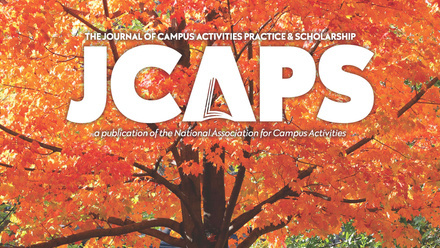Teaching Student Leadership, Ethics, and Group Responsibility for Hazing Prevention: An Exploratory Study - JCAPS Vol. 3 Issue 1
Hazing is generally defined as any activity expected of someone joining or participating in a group that humiliates, degrades, abuses, or endangers them regardless of a person’s willingness to participate (Hoover, 1999) and has been documented among college students in groups ranging from athletics to marching bands to fraternities and sorori- ties (Allen & Madden, 2008). This investigation examined attitudes and perceptions about hazing for students in a leadership development program compared to their peers. Both groups participated in an online hazing prevention education module and completed pre- and post-surveys. Data were analyzed using statistical two-tailed t-tests for analysis. Though the literature on hazing is highly suggestive of linkages between leadership development and hazing mitigation, it appears this may not be the case. Findings from this investigation revealed that leadership students at this institution responded less strongly against hazing when compared with their peers in the general student body.




